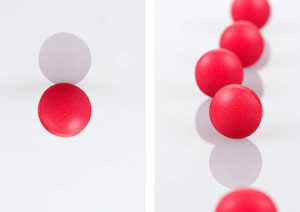Are Food Additives Making Kids Hyper?
It would seem a no-brainer, given the old "you are what you eat" adage, that those scary-sounding and clearly unnatural ingredients added to a wide range of foodstuffs might have some impact on children's health. A team of British researchers from the University of Southampton believes that could be the case.
It would seem a no-brainer, given the old “you are what you eat” adage, that those scary-sounding and clearly unnatural ingredients added to a wide range of foodstuffs might have some impact on children’s health. A team of British researchers from the University of Southampton believes that could be the case.
Your support matters…New York Times:
It was the first time researchers conclusively and scientifically confirmed a link that had long been suspected by many parents. Numerous support groups for attention deficit hyperactivity disorder have for years recommended removing such ingredients from diets, although experts have continued to debate the evidence.
But the new, carefully controlled study shows that some artificial additives increase hyperactivity and decrease attention span in a wide range of children, not just those for whom overactivity has been diagnosed as a learning problem.
The new research, which was financed by Britain’s Food Standards Agency and published online by the British medical journal The Lancet, presents regulators with a number of issues: Should foods containing preservatives and artificial colors carry warning labels? Should some additives be prohibited entirely? Should school cafeterias remove foods with additives?
Independent journalism is under threat and overshadowed by heavily funded mainstream media.
You can help level the playing field. Become a member.
Your tax-deductible contribution keeps us digging beneath the headlines to give you thought-provoking, investigative reporting and analysis that unearths what's really happening- without compromise.
Give today to support our courageous, independent journalists.








You need to be a supporter to comment.
There are currently no responses to this article.
Be the first to respond.